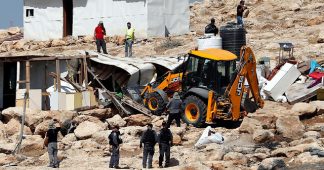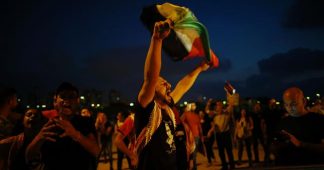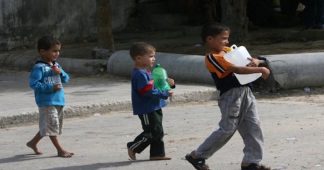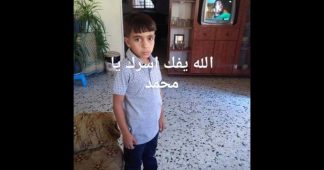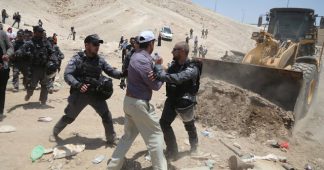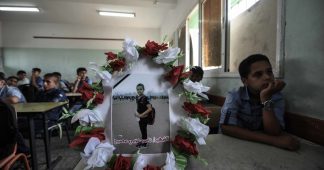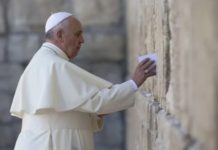Children, including Jana Zawahra (front left), stand in line near the remains of their school east of Bethlehem.
Jub El-Thib (CNN)Jana Zawahra sits outside a large tent, sobbing to herself on the ground where her school once stood.
The brand-new building, paid for by the European Union, was constructed just three weeks ago. Now, little more than the concrete floor and an outhouse remain.
“It doesn’t look nice anymore, it’s ugly,” the eight-year-old says, devastated at the loss of her classroom at Jub El-Thib, east of Bethlehem.
She and her classmates — 64 children from the first to the fourth grade — had only been back in class for three days when Israeli forces arrived to demolish the school, which Israel says was built illegally.
Now they’ve been left with only a tent to shelter from the searing heat of the August sun — and no tables to sit and study at.
“Just when they were due to return to the classroom, Palestinian children are discovering that their schools are being destroyed,” said Hanibal Abiy Worku, a director of the Norwegian Refugee Council (NRC).
“What threat do these schools pose to the Israeli authorities? What are they planning to achieve by denying thousands of children their fundamental right to education?”
According to the NRC, three educational facilities for Palestinian children in the West Bank have been demolished or damaged by Israeli authorities in the past two weeks.
A kindergarten for the Bedouin community of Jabal Al Baba was torn down, and a primary school in Abu Nuwar had its solar panels — the only source of power at the school — dismantled and taken away, the NRC says.
The body that looks after civil administration in those parts of the West Bank still totally controlled by Israel — designated as Area C — is known here by its acronym, COGAT; it stands for Coordinator of Government Activities in the Territories.
COGAT says all the demolished structures were illegal and that the demolitions were carried out lawfully.
In a statement to CNN, COGAT said: “The building in Jub El-Thib was built illegally last weekend, a blatant violation of ‘stop work’ orders, and without receiving the required permits. Therefore, the confiscation was carried out in accordance with the Civil Administration authorities.”
The European Union says about 100 structures — homes, shelters, water networks, as well as schools — in the West Bank and East Jerusalem, for which the EU or EU member states have provided funding, have been demolished or seized over the past year.
New building projects in the West Bank’s Area C require a permit from Israeli authorities.
But the NRC says the majority of planning requests are denied; the NRC says that leaves international donors and Palestinians alike with no choice but to build anyway.
In Jub El-Thib, the atmosphere outside the tent-school was one of tension and growing desperation.
A group of mothers discussed what to do with their children; should they keep them at the school so they could keep learning, or take them home to protect them from the heat?
Sami Mruwwah, the Palestinian director of education, had other ideas: “We will stay here and resist against the occupation,” he said.
“We will rebuild the school soon, what happened against the school and its students violates human rights and childhood in particular,” he added. “It is inconceivable for this world to remain silent in the face of the crimes of occupiers against education in Palestine.”
As the political arguments continued, the children appeared oblivious to the tension surrounding them, playing with balloons, and drawing on large sheets of paper laid out on the concrete foundations of the demolished school.
Jana remained upset, but most of her school friends seemed playful and happy.
“I love school and playing with friends and painting; and the teachers are so nice,” said six-year old Ibtisam Sami.
Eventually, their mothers decided to take the children home.
“It is so sad that in 2017 we still have to fight to get our children educated,” said mother-of-four Intisar Al Wahsh. “But we cannot keep them out in this heat, and we are also anxious about settlers coming.”
“Most important of all, it’s not the children’s job to resist against the occupation.”







